This month we bring you news that:
- Regional – there is a new report by several NGOs on how armed criminal gangs have expanded their presence in the Amazon, threatening indigenous inhabitants.
- Peru – Amnesty has a petition calling for the perpetrators of the killings during last year’s protests to be prosecuted.
- Colombia – Amnesty has a petition demanding that the Colombian government protects Human Rights Defenders at risk, in particular members of the human rights NGO CREDHOS .
- Brazil – Amnesty has issued an action and a video interview with the mother of Pedro Henrique, a Brazilian human rights defender killed by police in 2018.
- Argentina – Amidst protests against new decrees, Amnesty has published an open letter to President Milei’s government urging that people must be at the centre of all public policy.
- Chile – Amnesty has an Urgent Action calling for an end to police impunity for excessive use of force during the 2019 protests.
- Venezuela – the Maduro government has mobilised troops, threatening to take action on a land claim on the oil-rich Essequibio region of Guyana.
REGIONAL
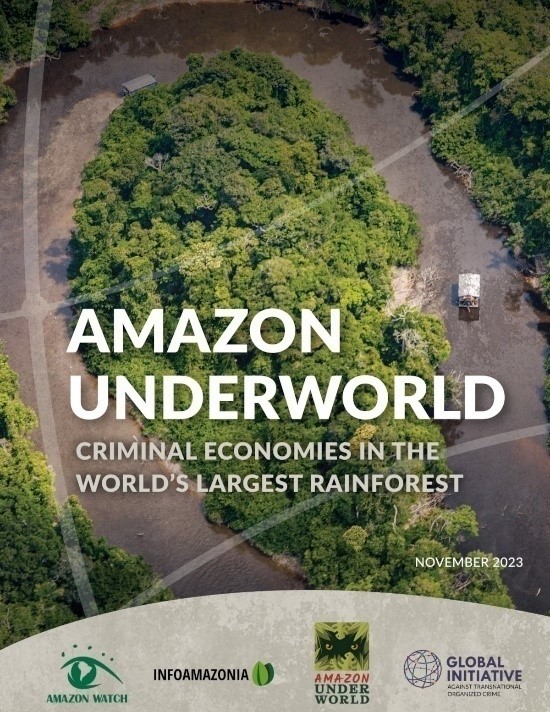 A group of NGOs, including Amazon Watch, have released a report Amazon Underworld (based on the work of the Amazon Underworld research journalism project and developed together with the Global Initiative Against Transnational Organized Crime) that shows how criminal organisations and armed groups have expanded their presence, increased their political control and diversified their economies in the Amazon with disastrous impacts on Indigenous peoples.
A group of NGOs, including Amazon Watch, have released a report Amazon Underworld (based on the work of the Amazon Underworld research journalism project and developed together with the Global Initiative Against Transnational Organized Crime) that shows how criminal organisations and armed groups have expanded their presence, increased their political control and diversified their economies in the Amazon with disastrous impacts on Indigenous peoples.
PERU
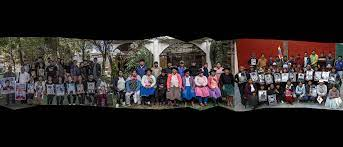 Please sign the petition that we have placed on the AIUK website calling on the Peruvian Attorney General to press ahead with criminal investigations into the deaths and injuries during the protests in Peru between December 2022 and February 2023. After a year, the families and communities are still waiting for truth, justice and redress.
Please sign the petition that we have placed on the AIUK website calling on the Peruvian Attorney General to press ahead with criminal investigations into the deaths and injuries during the protests in Peru between December 2022 and February 2023. After a year, the families and communities are still waiting for truth, justice and redress.
Ex-President Fujimori was released from prison on 6 December, following an order by Peru’s Constitutional Tribunal. Fujimori was serving a 25-year sentence for his role in extrajudicial killings, abductions, enforced disappearances and corruption. The Inter-American Court of Human Rights (IACHR) had ordered Peru not to release Fujimori, but the tribunal argued that the order was not binding and then ignored a further IACHR order to refrain from implementing the ruling pending a review by the Court. This article provides the background and the political context.
COLOMBIA
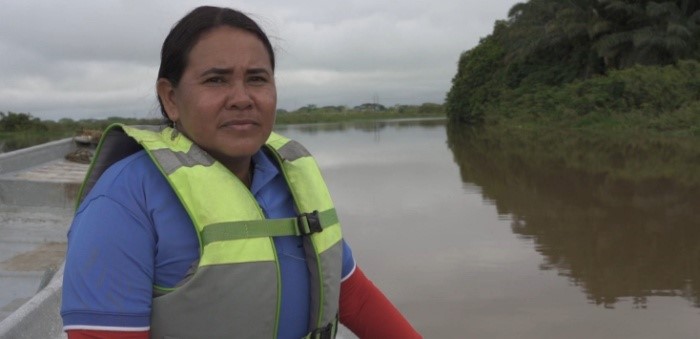
Amnesty hosts Yuly Andrea Velásquez Briceño, who explains how they formed the Federation of Artisanal, Environmental and Tourist Fishermen of the Department of Santander (FEDEPESAN) in 2017 to defend their water rights, and the risks this entails. Shots were fired at her in 2021 and she has received death threats. In 1991 her 5-year old brother was killed by a stray bullet fired by guerrillas and two years later her father was killed by paramilitaries.
Please sign Amnesty International’s petition to the Colombian government demanding that they protect human rights defenders and, in particular, members of CREDHOS (Regional Corporation for the Defence of Human Rights). CREDHOS was formed in the 1980s and in 2023 a bomb was placed at their office by ELN guerrillas and while accompanying an administrative police procedure in the area known as “Finca El Hebron” in Barrancabermeja, staff members of CREDHOS were shot by armed civilians.
Richard participated in a seminar with Reinaldo Villalba, the eminent Colombian human rights defender and lawyer who has worked on human rights for 45 years as a member of the lawyers collective CCAJAR. He is leading the case against former President Alvaro Uribe for the extrajudicial killings of thousands of civilians, known as ‘False Positives’. In a long interview, he explains why he chose Argentina as the jurisdiction for his case and he reflects on the dismal record of successful prosecutions for these crimes – about 5% – leaving 95% with impunity.
Colombia Reports that the ELN guerrillas have agreed to suspend kidnappings, a lucrative source of revenue for the armed group. They also report that the Special Jurisdiction for Peace (JEP) has ordered the detention of the Governors of two departments for failing to cooperate into the investigations into forced disappearances, which are estimated at more than 140,000 during the civil war.
In a third article, the publication explains the Constitutional Court’s ruling that ongoing violence against community leaders and human rights defenders constitutes a massive violation of human rights. The Court blames the government for “the lack of a plan articulated in a clear and precise instrument has contributed to the infringement of rights. In addition, there are serious deficiencies in the organization of available human and material resources, as well as probably insufficient budgetary allocations.”
BRAZIL
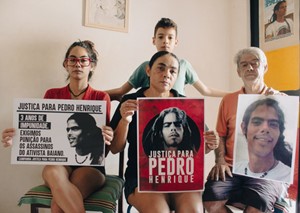
Four years later, the police officers suspected of Pedro’s killing are still on duty and a trial has yet to begin. Pedro’s mother, Ana Maria Santos, centre, is bravely fighting for justice for his death. She has received death threats. Pedro and Ana Maria are part of Amnesty’s annual Write for Rights campaign. Please take action and support Ana Maria in her fight for justice. You can listen to Ana Maria talk about Pedro in this video clip with English subtitles. The Brazilian police killed 6,400 people in 2022.
Congress has overturned President Lula’s veto of Bolsonaro’s Bill opening up development of the Amazon. For Survival International, ‘The measures that will now pass into law constitute the most serious and vicious attack on Indigenous rights in decades. Under the new law, loggers, ranchers and others who have illegally invaded Indigenous territories will be allowed to remain there destroying the forest, until the lands are fully demarcated – a process that usually takes decades.’ It also brings back the threat that indigenous communities will lose their chance to register their historical lands.
For the third time Amazon State’s Court has frozen the permitting process for Brazil Potash’s $2.5 billion Autazes potash project in the Amazon. The Public Prosecutor’s Office alleges to have reviewed audio recordings, video reports, telephone calls and face-to-face hearings, all of which show “the chaotic situation established between the Mura people and indigenous leaders in the villages”. Indigenous leaders said there wasn’t a consensus on the benefits of the Autazes among the Mura people, with some against the project and the Mura Indigenous Council (CIM),in favour.
ARGENTINA
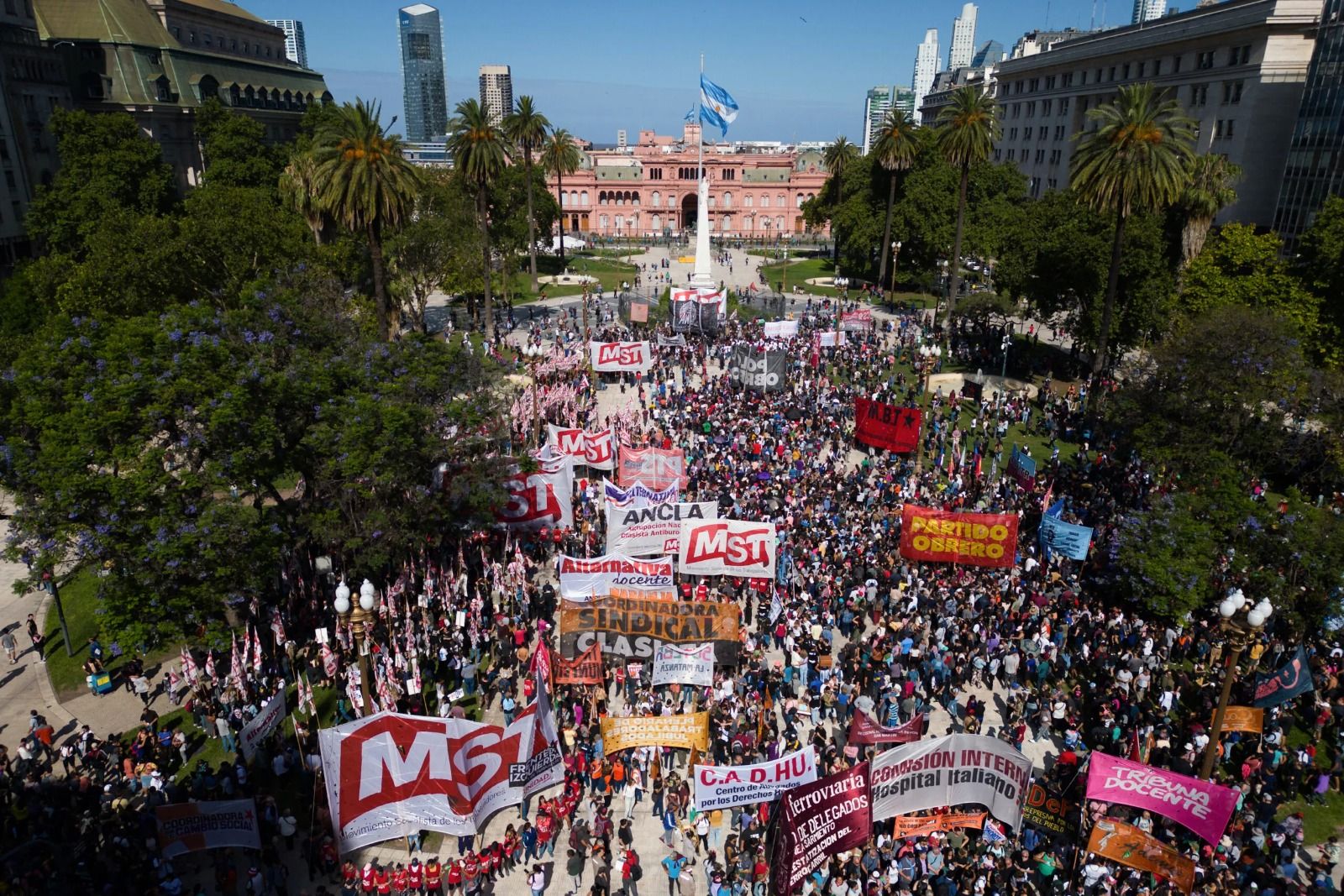
emergency decree
Amnesty International has published an open letter to the new government, urging that people must be at the centre of all public policy. It highlights eight interconnected points that it considers essential issues in terms of rights and that must be part of a future government program. One point is “Ensure Women’s Right to a Life Free of Violence” which highlights the bleak fact – In 2022, a femicide occurred every 35 hours, with 76% of the 252 deaths happening in domestic violence contexts. At least 17% of the victims had made formal complaints.
Security Minister Patricia Bullrich has announced an anti-picketing protocol to prevent roads from being blocked – people should only demonstrate on pavements and never interfere with the right of others to move freely. Amnesty International express concern that the protocol violates the right to free assembly and association and freedom of expression. Also the powers for the intervention of police and security agents do not respect international standards on the use of force, inevitably generating violence and social conflict, endangering the life and physical integrity of people.
New President, Javier Milei, announced on television an emergency decree (DNU) to deregulate the economy with 366 measures to stabilize the economy, but also affecting labour and other social rights. Many Argentines immediately took to the streets or their balconies banging pots and pans in protest. A demonstration in Buenos Aires to commemorate the anniversary of the 2001 killings of protesters during the uprising against then-President Fernando de la Rúa, was widely depicted as a protest against the new government. Protests also occurred in cities throughout Argentina.
Argentina’s General Labor Confederation (CGT) have called for a nationwide strike on January 24th to protest against President Javier Milei’s sweeping emergency decree. This follows further demonstrations in Buenos Aires demanding the judiciary overturn through a declaration of unconstitutionality. There were clashes as police tried to enforce Security Minister Bullrich’s new protocol for defending freedom of movement.
One decree reduces the existing 19 government ministries to nine, including a new Human Capital Ministry. This eliminates separate Women, Gender & Diversity, Education, Culture, Labour and Social Development Ministries of the previous administration. The Justice & Human Rights Ministry has been renamed the Justice Ministry. This breaks with 24 years of tradition – the inclusion of ‘Human Rights’ into the judicial portfolio first began in 1999 under Fernando de la Rúa’s government.
The Inter American Commission on Human Rights ruled as admissible a case against the Argentine State, for not investigating and holding to justice members of the Armed Forces who tortured soldiers during the South Atlantic conflict. The case refers to tortures committed against soldiers by their own officers in the Falklands during the 1982 war, among which staking, simulating burials and firing squads, soldiers ill clothed and ill fed’ plus sexual abuses. It is estimated some 200 former conscripts suffered such abuses.
CHILE
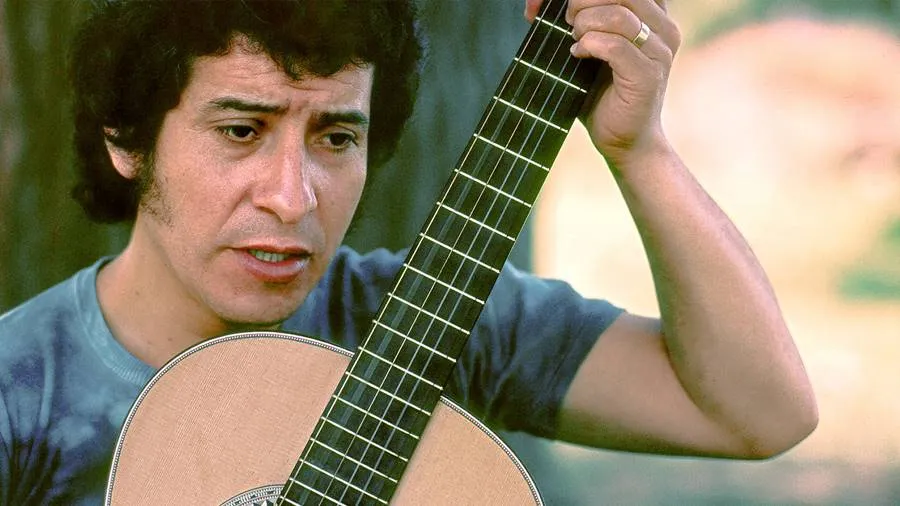
56% of Chilean voters rejected a new draft constitution to replace the country’s dictatorship-era charter. President Gabriel Boric has said it would be his last attempt to reform the constitution. Voters rejected a progressive version in 2022, and this latest draft was drawn up by a more right-wing constitution committee. “Unexpectedly, they managed to write an even worse constitution” said Gustavo Gatica prior to voting. Gustavo, blinded during the 2019 protests was featured in Amnesty’s report “Eyes on Chile”, and is highlighted in the current Urgent Action calling to end police impunity.
A former army lieutenant has just been extradited from the United States. Pedro Barrientos has been charged with the kidnapping and murder of the folk singer Víctor Jara. One of the best-known victims of Pinochet’s coup d’état, Jara’s protest songs remain popular today. An autopsy on Jara revealed at least 44 bullet wounds and 56 fractures. Just 0.6% of surviving dictatorship-era victims have seen their cases end in a conviction. Jara’s widow, Joan Jara, had long campaigned for justice; sadly she died last November aged 96.
Chile’s Supreme Court confirmed the convictions of 22 agents of the dissolved Directorate of National Intelligence for the kidnappings and homicides of some victims of the Operation Condor, and ordered reparation measures. Some of the former dictatorships across South America implemented Operation Condor to search for, persecute, torture, summarily kill and forcibly disappear people perceived as dissidents across the region. UN High Commissioner for Human Rights, Volker Türk, hailed the Supreme Court judgement as a major step towards accountability for thousands of victims.
A UN Committee for the Protection of the Rights of All Migrant Workers and Their Families follow-up report on Chile was quite critical. It observed the increase in xenophobia, discrimination and the negative perception of migration; it also expressed concern about the legislative proposals aimed at criminalizing irregular migration.“The persistent attempt to position migrants as the enemy who must be expelled or punished is unacceptable”, says Amnesty International.
VENEZUELA
Venezuela’s president, Nicolas Maduro, ordered more than 5,600 military personnel to participate in defensive exercises, in the latest escalation over the Essequibo region of neighboring Guyana. Maduro claimed that he was launching an action ‘of a defensive nature in response to the provocation and threat of the UK against peace and the sovereignty of our country’ after the UK Ministry of Defence announced that it would send a patrol vessel to Guyana. The Venezuelan administration has claimed that the oil-rich Essequibo region belongs to Venezuela; Guyana has referred the issue to the United Nations; both countries had agreed not to use force.
The United States and Venezuela agreed to a prisoner swap, in which ten US citizens held in Venezuela were released in exchange for Alex Saab, a Colombian-born businessman and aide to the Venezuelan President. Saab had been on his way to Iran when he was detained on an Interpol “red notice” in 2020, after which we he was extradited to the US and charged with money laundering and bribery. The prisoner swap is the latest negotiated outcome between the US and Venezuela, with Venezuela having benefited from the lifting of some oil sanctions.
Maduro has stated that he has still not decided whether he will be the candidate for the United Socialist Party of Venezuela in the 2024 Presidential election. Maduro came to power ten years ago and was reelected in 2018 in what many have described as a sham election. In October of last year, the opposition primaries saw over 90% of an estimated 2 million voters nominate Maria Corina Machado as the opposition candidate, despite Machado being currently disqualified from holding office by the Venezuelan government. The primary results are currently suspended by the Maduro government, although this is subject to appeal.
OUR TEAM AND YOU
We wish you a happy, healthy, prosperous and peaceful 2024! All the best,
South America Team – Richard Crosfield (Colombia and Brazil), David Rogers (Argentina and Chile), James Baird (Venezuela) and Graham Minter (rest of South America). And please don’t forget that you can follow us on our Facebook page and Twitter (X).